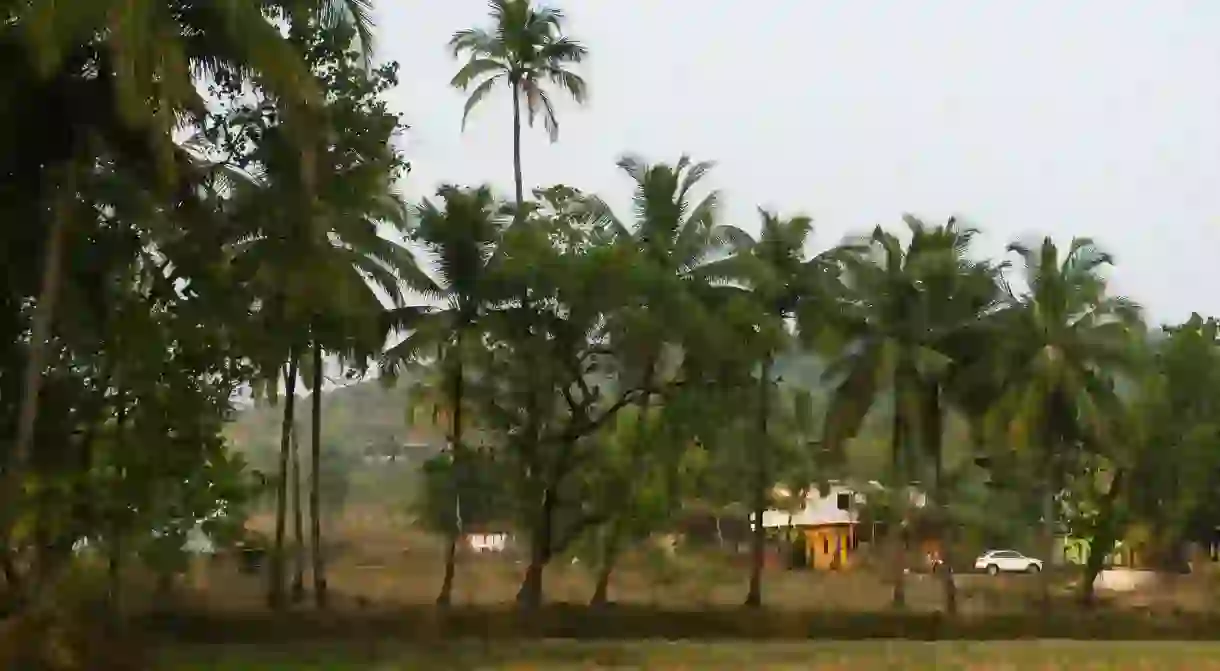Why Goa's Housewives Are Making Biodegradable Sanitary Pads

Poor waste disposal and unsafe menstrual practices remain two of India’s biggest challenges to tackle. Many have tried and a lot has been done on the issue, yet the reality of the situation remains a serious health and safety hazard for India’s entire population. Hailing from the small village of Pilgao in rural Goa, a team of housewives are taking a swipe at tackling the crisis by manufacturing and selling low-cost, biodegradable sanitary pads from their homes.
Housewives turned businesswomen
Collectively, these women make up Saheli, a self-help group founded by Jayashree Parwar in 2015 who took up the challenge of tackling poor sanitary disposal in her local area of Goa’s Bicholim district. The group’s product, branded under the name ‘Sakhi,’ is a sanitary napkin made of non-harming natural materials such as pine wood paper, silicon paper and butter paper. They can be decomposed within eight days when buried in the ground. One packet contains eight pads and approximately half a US dollar.

The initiative came from local business Teerathan Enterprises who devised the manufacturing unit and offered to set it up for free in willing homes. Out of nearly 50 villages, Jayashree was the one to accept the challenge, batting away social stigma surrounding periods to improve her environment and the lives of those in her community and beyond. Almost three years later, the group has sold over 1,000 pads through local markets, festivals and via local contacts. The women want local businesses, such as pharmacies, to get on board, however, that is taking some time to achieve.
India’s sanitary challenge
Many women and girls across India continue to adopt unsafe and unhygienic menstrual practices. Some do it because they don’t know any better, while others do it because they do know better, but can’t afford to do better.
A report by AC Nielsen found that only 12% of India’s 355 million menstruating women use sanitary napkins and 88% of women resort to shocking alternatives like unsanitised cloths or rags, ashes, newspaper and husk sand. Not only are these practices highly unhygienic, but they also pose a high-risk to the health of women through various infections and diseases.

For the country as a whole, this is a serious crisis. Sanitary waste disposal is not merely a waste management issue, it’s a health and human rights issue that affects the entire country. As there is currently no standardised method of sustainable sanitary waste disposal, every menstrual product disposed of contributes to either soil, air or water contamination and affects each person (men and women) in some way. Clean India Journal estimates that 9,000 tonnes of sanitary waste (432 million pads) is generated annually in India, 80% of which ends up flushed down a toilet or dumped in a landfill.
It’s a tough one to crack, however, based on the ground reality of life for the majority of India’s women, cost-effective, waste-free options are the most viable solution to India’s waste sanitation issue and these housewives are giving it a shot.
If you want to know more about Saheli or contact the women, visit their Facebook page.













